Opinion
*A CASE FOR “AMOTEKUN CORPS” IN KOGI WEST*
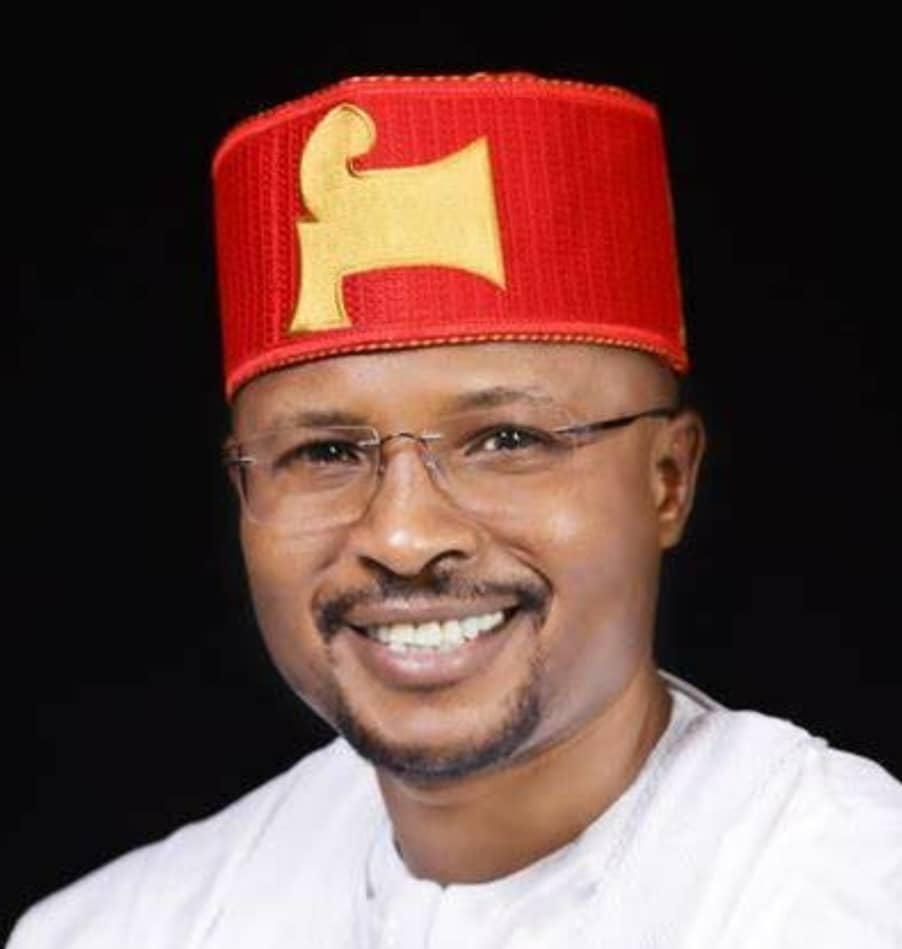
*By Tunde Olusunle*
It had festered for long. The wanton trespass, the emboldened criminality, the mindless murders, the reckless disruption of the rhythm of day-to-day activities of several communities in Nigeria’s South West. Formal and informal intelligence, fingered voyaging Fulani herdsmen as prime perpetrators of the crimson regime upon the Yoruba hemisphere. The pastoralists herded their cattle from the nation’s north, down south. They fed and fattened their livestock on farmlands owned by landowners, with unbelievable impunity. Aboriginal dissenters to such roughshod rides through their sweat-grown farms, were often sent to early graves. Luckier escapees, most times left with scars to last a lifetime. To confirm that they were on a mission to destroy, maim and murder, they moved around with deadly machetes and sophisticated weapons, beyond regular arms admissible for self protection, as they rampaged through the zone.
Beyond farmlands in the recesses of the Yoruba country, kidnappers, armed robbers and killers took over and terrorised roads and expressways in the South West, with uncommon boldness. They routinely caused gridlocks on roads like the all-important Sagamu-Ore-Benin highway, in the discharge of their criminal ventures. They would move from vehicle to vehicle dispossessing commuters of their belongings and shooting at random, killing the hapless. They abducted travellers and would subsequently request for ransoms from the families of their victims. At other times, they just murdered their victims like they did to Olufunke Olakunrin, daughter of the respected Yoruba leader, Reuben Fasoranti, on the same road under reference, in June 2019. Fortuitously, her killers were found, prosecuted and sentenced to death three years later.
Governors of the South West states, unanimously afflicted by this scourge, agreed in January 2020, to establish in their various states, a security outfit to be known as *Amotekun.* A Yoruba word, *Amotekun* means “cheetah.” The animal is a member of the global “big cat” family in the animal kingdom, which are apex predators. Creatures in this bracket which include lions, tigers, leopards, jaguars, are famous for stealth, speed and precision in preying on their targets. All six states in the region: Lagos, Ogun, Oyo, Osun, Ondo and Ekiti, signed up for this initiative, which was driven from the very top by the governors of each state. The South West states are famous for their historical collaboration on issues of the socioeconomic wellbeing of their states and people. The *Amotekun* concept is emplaced as a homegrown complement to the endeavours of existing intelligence and security organisations, in securing lives and property. It is not a rival, but a partner with preexisting agencies in the intelligence and security ecosystem. This typically consists of the military, the police, the Nigerian Security and Civil Defence Corps, (NSCDC) and the Department of State Services, (DSS).
Across the six South West states, *Amotekun* is charged primarily to protect persons, property and carry out emergency response services. The Corps systematically gathers, documents, evaluates and analyses data and information to convert to actionable intelligence for tactical, operational and strategic goals. It shares intelligence about crime in progress; suspicious activities, criminal suspects and other criminal activities. *Amotekun* collaborates with similar security agencies including but not limited to Lagos, Ogun, Oyo, Osun, Ondo and Ekiti states in deterring kidnapping, terrorism, disruption of livelihood, criminal damage to property, cultism, highway robbery and other criminal activities. It ensures that all persons travelling along highways, major roads, remote areas, hinterlands and forests are free to engage in their normal activities without fear or hindrance. *Amotekun* also assists the police in carrying out any other lawful activity aimed at maintaining law and order within their areas of jurisdiction. The operational ambit of the Corps could indeed be broader.
Since the enthronement of *Amotekun* in the six core Yoruba states five years ago, the organisation has complement the enterprise of statutory security outfits in notable measure. It has foiled robberies, disrupted kidnappings, stemmed open-ended trespass and destruction of farms by marauding herdsmen, and rescued potential victims and casualties of criminal schemes. As recently as Sunday February 15, 2025, *Amotekun* foiled a robbery on the notorious Sagamu- Odogbolu- Ijebu Ode, on the Lagos-Sagamu-Ore-Benin expressway. One of the suspects was neutralised, while a second one was arrested during a gun duel. The suspect arrested led *Amotekun* operatives to the hideout of the gang, where another suspect who had earlier fled during the gun duel, took refuge. Just last week, February 10, 2025, the Ondo State Command of the Corps rescued five victims of a kidnapping episode on the ever recurring Benin- Owo road. Such is the serially documented efficacy of *Amotekun* in its various theatres of operation.
Worthy of note is the fact that the topmost echelons of *Amotekun* leadership across the South West, are very senior retired military and police officers, not below the ranks of retired Brigadier-General or Assistant Inspector General of Police, (AIG). The Oyo State outfit for instance is headed by Brigadier-General Kunle Togun, while the Ogun State formation is led by Brigadier-General Alade Adedigba. The Chairman of the Osun State variant is AIG Wale Abbas, while Brigadier-General Olu Adewa leads the Ekiti State *Amotekun* command. This underscores the seriousness with which the outfit is organised and deployed. Our reservoir of ex-servicemen in our communities, local hunters, vigilantes and youths can constitute the core of the operatives.
Recent criminal incidents in the the Okun country in Kogi State and Kogi West senatorial district at large, compels a proposition for the establishment of an *Amotekun* detachment in the zone. Like its kith and kin in core Western Nigeria, Okunland has been the butt of several violations by a broad canvas of criminals. Daredevil armed robbers have invaded Okun communities, targeting banks and murdering regular folk. Kidnappers perennially lay siege on lonely stretches of the dilapidated road networks in Okunland, killing innocents and taking hostages in kidnap- for- ransom incidents. On May 2, 2021, Solomon Adegbayo a Commissioner in the Kogi State Pensions Board was killed in the same incident in which the Chairman of Yagba West local government area at the time, Pius Kolawole, was kidnapped.
Last December, Alaba Ope, the Councillor representing Odo-Ape Ward in Kabba-Bunu local government area, and eight others, were kidnapped in a midnight operation by brigands. An Abuja-bound commuter bus from Lagos, carrying 18 passengers, was also in December 2024, intercepted around Obajana in Okunland and all the occupants abducted. The kidnappers placed a N100 million ransom on their victims. Should we mention the travails of subsistence farmers in Okunland and Kogi West who in several instances have literally been barred from their farmlands in their homelands by scurrilous criminal elements masquerading as herders? This has been the collective experience of the genetically peace-loving people of Kogi West District.
The people of the geopolitical span under interrogation, have not exactly thrown up their hands in despair in their worrying circumstances. Hunters and vigilantes despite their constrained training and arming, are usually on the front foot combing the forests and thickets. Following attacks on three commercial banks located in Egbe and Odo-Ere in Yagba West just before Christmas in 2021, for instance, Okun hunters and vigilantes entered the forests and indeed arrested a few of the culprits who missed their ways after the dastardly operation. Indeed, early June 2024, Okun vigilantes and hunters joined the army, police, DSS and NSCDC, in raiding the camps of kidnappers in the forest of Yagba West, in an operation which lasted for several days. Yagba West shares boundaries with Kwara, Niger and Ekiti states which makes it specifically vulnerable to criminal incursions.
Several other communities and councils in Kogi West, share abutments with neighbouring states which makes them vulnerable. Disturbed by the unabating recurrence of multifaceted criminality in Okunland which dominates six of the seven local government areas in Kogi West, Sunday Karimi, the Senator representing the District, singularly undertook the construction of a *Forward Operating Base,* (FOB) in Egbe, last year. The fully furnished mini-barracks which is capable of hosting two units of military personnel, was commissioned last October. It has since been taken over and operationalised by the Nigerian Army. To underscore his concurrence with Karimi’s bold initiative, the Member Representing Yagba federal constituency in the House of Representatives, Leke Joseph Abejide, participated at the inauguration and handing over event.
Given the dynamism of crime and criminality, containment and mitigation strategies must also of necessity be proactive. As an essential component of the global Yoruba country, as a people and senatorial district which share boundaries with two geopolitical subscribers to the *Amotekun* concept, notably Ondo and Ekiti states, there is no better time to adapt the prototype in Kogi West and in Okunland. The template may be available on the internet or can be obtained from one of the present six participating states. While it is true that whole states, and not sections or parts of states are subscribers to the philosophy elsewhere, there must be a way to adapt the template for Kogi West. As a people, we know where our shoes presently pinch us.
At the recent maiden annual lecture of the National Institute for Security Studies, (NISS), the Director-General of the Department of State Services, (DSS), Oluwatosin Ajayi, noted that “communities should be empowered to serve as the first line of defence in tackling criminality.” According to him, they must lead the way “before the intervention of the police, the military and other security agencies.” Ajayi noted that “some level of armament must be allowed at the level of communities, so they can serve as the first layer of defence.” He cited examples from *Tafawa Balewa* and *Bogoro communities* in Bauchi State where he previously served, as places where the antics of marauders were successfully repelled. He indeed alluded to his community back home in Ogun State as one which he is guiding to stand up for itself in the face of adversity. This gifts us a perfect window to explore, for the setting up of a *Kogi West/Okunland Amotekun Corps.*
The people of Kogi West trust their Senator, Sunday Karimi, to pick up the gauntlet and rally his colleagues, namely Leke Abejide, Idris Salman and Danladi Suleiman Aguye, representing Yagba, Kabba-Bunu/Ijumu and Lokoja/Kotonkarfe, respectively, to articulate this proposal.
Representatives of state constituencies in Kogi West in the Kogi State House of Assembly, (KGHA), and Chairmen of local government areas in the district, must of necessity be an integral part of this concept. Very happily, the federal government now directly credits the accounts of local government authorities with their dues which allows room for targeted fiscal flexibility. Budgets have to be drawn up to accommodate the needs and remuneration of *Amotekun* operatives. Elsewhere, they are properly kitted with uniforms, footwears and bulletproof vests. They are well armed and enabled with ample quantities of ammunition, and are duly remunerated and provided with serviceable patrol and operational vehicles. They undergo drills to keep in shape and ready. Let’s imagine just how better improved the security situation in Kogi West will be if 100 *Amotekun* corps members are added to the existing security capacity of each LGA. This comes to a total of 700 additional crime fighters in the zone. Criminals will definitely have a rethink before daring their potential Waterloo.
*Tunde Olusunle, PhD, Fellow of the Association of Nigerian Authors, (FANA), is an Adjunct Professor of Creative Writing at the University of Abuja*
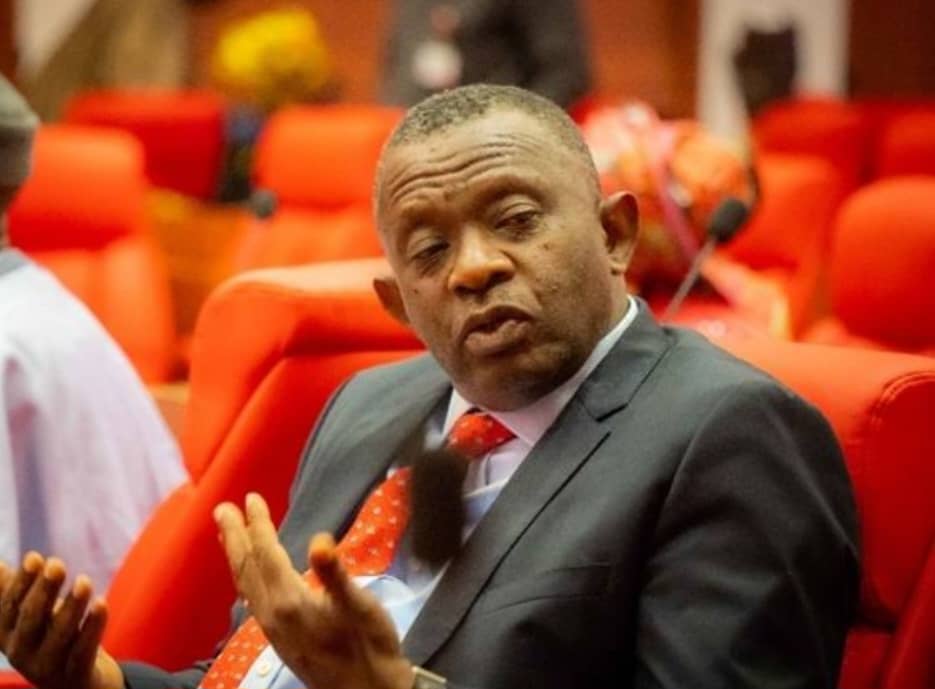

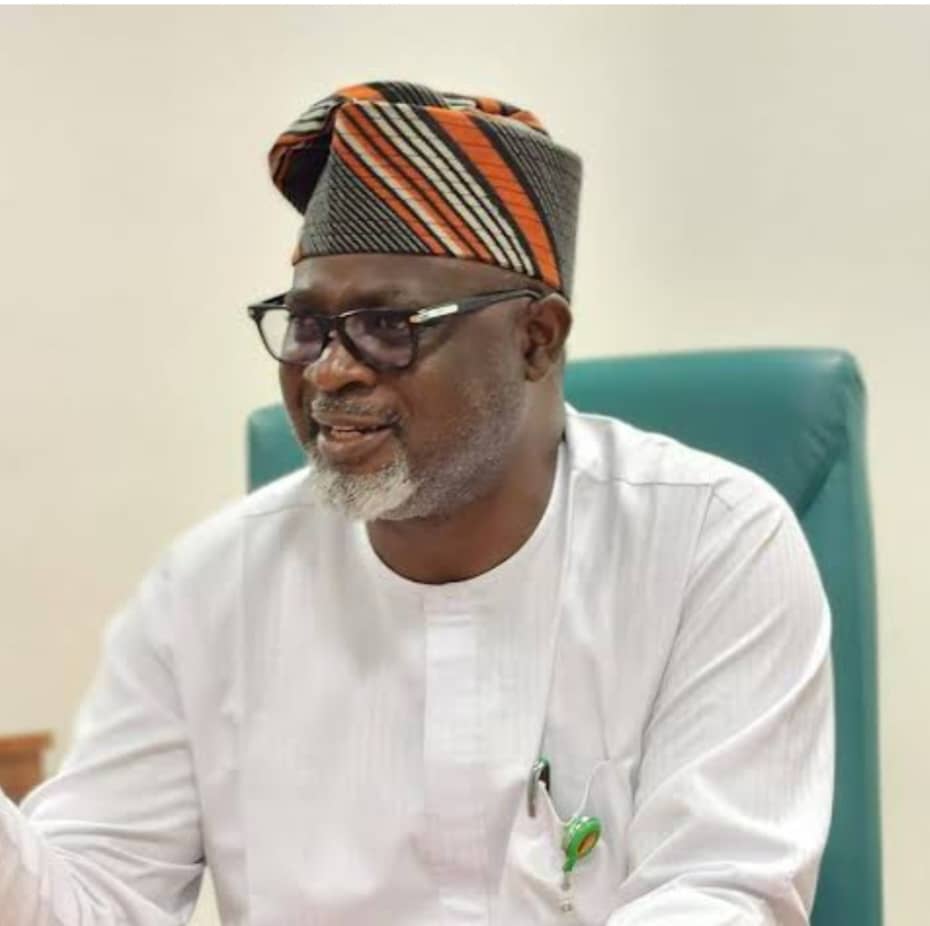
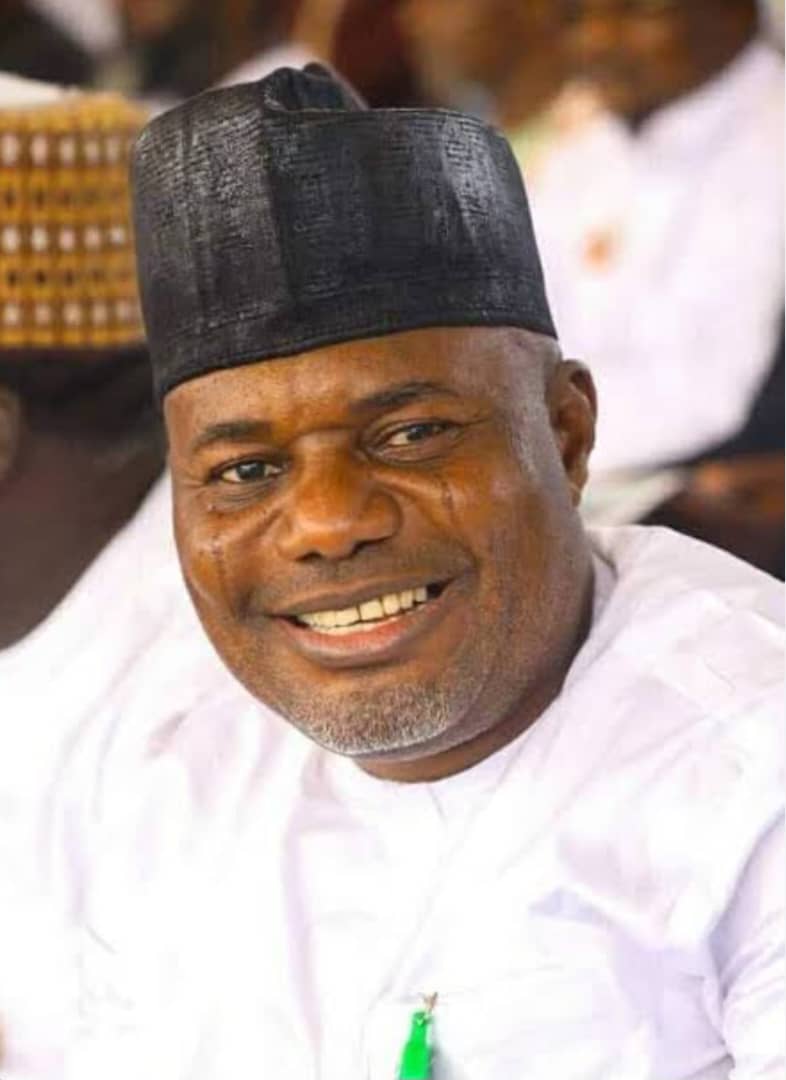
Opinion
CBN under Cardoso and $6.83 Billion balance of payments surplus in 2024 that signals economic resurgence

By Ibrahim Modibbo
Since his appointment as the Governor of the Central Bank of Nigeria, in October 5, 2023, Olayemi Cardoso has continue to bring on board wide-range of macroeconomic reforms, stronger trade performance, and renewed investor confidence in Nigeria’s economy, that were aimed at putting the country back to its economic footing, as a strong economy that is second to none in Africa.
As part of the ongoing reforms, the Central Bank of Nigeria recently announced a Balance of Payments (BOP) surplus of $6.83 billion for the 2024 financial year, marking a decisive turnaround from deficits of $3.34 billion in 2023 and $3.32 billion in 2022, according to a press statement from Mrs Sidi-Ali, Hakama, the Ag. Director, Corporate Communications of the apex bank.
CBN says “the current and capital account recorded a surplus of $17.22 billion in 2024, underpinned by a goods trade surplus of $13.17 billion. Petroleum imports declined by 23.2% to $14.06 billion, while non-oil imports fell by 12.6% to $25.74 billion. On the export side, gas exports rose by 48.3% to $8.66 billion, and non-oil exports increased by 24.6% to $7.46 billion.”
While “remittance inflows remained resilient, with personal remittances rising by 8.9% to $20.93 billion. International Money Transfer Operator (IMTO) inflows surged by 43.5% to $4.73 billion, up from $3.30 billion in 2023, reflecting stronger engagement from the Nigerian diaspora. Official development assistance also rose by 6.2% to $3.37 billion,” the statement added.
Nigeria recorded a net acquisition of financial assets totalling $12.12 billion. Portfolio Investment inflows more than doubled, increasing by 106.5% to $13.35 billion, while resident foreign currency holdings grew by $5.41 billion, indicating stronger confidence in domestic economic stability. Although foreign direct investment fell by 42.3% to $1.08 billion, the overall financial account posted notable gains.
The country’s external reserves increased by $6.0 billion to $40.19 billion by year-end 2024, bolstering its external buffer.
Notably, net errors and omissions narrowed significantly by 79.5% to negative $5.10 billion in 2024, down from $24.90 billion in 2023, reflecting substantial improvements in data availability and capture. This represents a major advance in data accuracy, transparency, and overall reporting integrity.
The 2024 BOP surplus highlights the effectiveness of Nigeria’s ongoing reform agenda. The liberalisation and unification of the foreign exchange market, a disciplined monetary policy approach to managing inflation and stabilising the naira, and coordinated fiscal and monetary measures have all contributed to enhanced competitiveness and investor sentiment.
“The positive turnaround in our external finances is evidence of effective policy implementation and our unwavering commitment to macroeconomic stability,” said the Governor of the Central Bank of Nigeria. “This surplus marks an important step forward for Nigeria’s economy, benefiting investors, businesses, and everyday Nigerians alike,” the statement further noted.
Other notable indicators to building strong economy by this policy include but not limited to a stronger trade performance, particularly in the current and capital accounts, with a surplus of $17.22 billion in 2024, has contributed to the balance of payments surplus. A goods trade surplus of $13.17 billion that will further strengthens the positive trend. The decline in petroleum and non-oil imports also contributes to a more favorable trade balance.
It will noteworthy to note that the CBN’s reforms have increased investor confidence, leading to higher foreign portfolio investment inflows. Portfolio investment inflows more than doubled in 2024, reaching $13.35 billion. This influx of capital indicates a stronger belief in the stability and growth prospects of the Nigerian economy.
The apex bank’s disciplined monetary policy and FX market reforms on the other hand are aimed at managing inflation and stabilizing the Naira, has contributed to a more stable financial system.
The liberalization and unification of the foreign exchange market have led to greater transparency and reduced distortions in the market.
The implementation of an Electronic Foreign Exchange Matching System (EFEMS) further enhances transparency and efficiency in the FX market.
The reforms, including the unification of the exchange rate, have improved Nigeria’s competitiveness and attracted more foreign investment. Testament to this is the clearing of a $7 billion forex backlog which has also boosted the country’s image with foreign investors.
Also, the significant improvements in data availability and capture have led to a marked reduction in net errors and omissions in the balance of payments data. This enhanced data integrity provides a more accurate picture of the country’s economic performance and builds trust with stakeholders.
In conclusion, the combination of strong trade performance, renewed investor confidence, disciplined monetary policy, and improved data integrity, all facilitated by the CBN’s wide-ranging reforms, are key indicators of Nigeria’s economic resurgence. These developments demonstrate the positive impact of the reforms on the nation’s external finances and overall economic stability.
Dr Moddibo, a public analyst, wrote in from Abuja
Opinion
CBN leads financial dialogue with JP Morgan, NGX, others, in pre-spring meetings Forum

By Dr. Ibrahim Modibbo
In anticipation of the International Monetary Fund (IMF) and World Bank Group (WBG) Spring meetings which commenced on Monday, April 21, 2025, the Central Bank of Nigeria (CBN) partnered with J.P. Morgan, the Nigerian Exchange Group (NGX) and Africa Private Capital Association (AVCA) to host a high-profile global forum at Nasdaq MarketSite in New York on Thursday, April 17, 2025, according to press statement by Dr Ibrahim Moddibo.
The forum, titled “The Nigeria Investment Agenda: Pathways for Growth & Global Partnerships,” convened global investors, diaspora leaders, and senior financial stakeholders to examine Nigeria’s macroeconomic prospects and ongoing reform progress.During his commanding address, Governor Olayemi Cardoso outlined his comprehensive reform strategy encompassing monetary tightening, foreign exchange market transparency, and enhanced financial governance.
He emphasized that these initiatives are establishing the foundation for sustainable macroeconomic stability and heralding a new era of transparency and confidence.Governor Cardoso reaffirmed the CBN’s unwavering commitment to rebuilding credibility through orthodox monetary policy, transparency, and consistency.
“We inherited a crisis of confidence but chose a different path. We’re not turning back,” he stated decisively.In a powerful fireside chat between the Governor and Nobel Prize-winning economist Dr. James Robinson, Reverend Richard L. Pearson Professor at the University of Chicago, Governor Cardoso elaborated on his vision to reestablish the CBN as a credible, trusted institution – rooted in domestic excellence and respected internationally.Mr. Muhammad Sani Abdullahi, Deputy Governor for Economic Policy at the CBN, delivered a macroeconomic update highlighting sharp increases in foreign exchange turnover, emerging signs of disinflation, and strengthening external reserves. “With a market-determined exchange rate and a transparent, rules-based policy framework, confidence is gradually being restored in Nigeria’s economy,” he noted.
Welcoming participants to the forum, Dr. Nkiru Balonwu, Adviser to the CBN Governor on Stakeholder Engagement and Strategic Communication, framed the forum as a key moment in the Bank’s broader engagement strategy. “Today is more than a conversation,” she noted.
It’s about opening the books on the CBN’s transformation story under Governor Cardoso – sharing the facts, interrogating the progress, and looking ahead together at what more can be done to build sustainable partnerships and unlock long-term capital,” she explained.
Another key highlight of the event was the panel discussion entitled “Repricing Nigeria: Assessing the Scope for Sustained Change.” Moderated by Gavin Serkin, Founder of New Markets Media & Intelligence, the panel featured global financial luminaries: Joyce Chang, Chair of Global Research at JPMorgan Chase; Jason Rekate, Global Co-Head of Corporate Banking at Citi; Razia Khan, Chief Economist for Africa & Middle East at Standard Chartered; and Ahmad Zuaiter, Co-Founder & CIO of Jadara Capital Partners. Each panelist provided expert perspectives on Nigeria’s investment landscape, noting renewed international interest driven by improved fundamentals, strengthened governance, and clearer policy direction.
The CBN Board and Monetary Policy Committee were represented by US-based diaspora members Mr. Robert Agbede, Prof. Melvin Ayogu, and Dr. Aloysius Ordu, underscoring the Bank’s global engagement and commitment to leveraging Nigerian talent worldwide. Temi Popoola, Group CEO of NGX, moderated the Q&A session, while Dr. Olubukola Akinniyi Akinwunmi, Director of Banking Supervision at CBN, delivered the closing remarks.The forum focused on substantive discussions and future prospects: engaging critical voices, evaluating progress, and identifying requirements for building lasting partnerships and attracting long-term capital. Central to this endeavor is a clear objective: reestablishing the CBN as a credible, trusted institution respected globally and dedicated to excellence at home.
Dr. Ibrahim Modibbo, a public affairs analyst writes from Abuja.
Opinion
Instagram , WhatsApp troubled by antitrust laws

By Sonny Aragba-Akpore
While we are yet to grapple with the fate of Tik Tok which President Donald Trump had asked its parent company Byte Dance of China to divest from it’s American operations or be banned, Meta Group, owners of Instagram and WhatsApp, is troubled over antitrust concerns.
The U.S. Federal Trade Commission (FTC) has taken the group to court over anti competition issues.
Specifically, the FTC wants Meta to divest from its two biggest companies in an antitrust trial that could redefine the future of social media.
And so Meta’s world is troubled as Mark Zuckerberg’s company could be forced to sell Instagram and WhatsApp if it loses the lawsuit that has just begun in the U.S.
The FTC has accused Zuckerberg’s company of having bought both platforms to eliminate competition and maintain a monopoly on social media.
If the court rules against them, it would be a historic blow to the tech giant.
Zuckerberg acquired Instagram in 2012, and then, two years later,(2014) completed his trio by buying WhatsApp.
Facebook is the third leg of the trio and this easily makes the group the largest tech owner in the world.
Although these acquisitions were approved by the FTC itself at that time ,but now this lawsuit seeks to reverse that approval, arguing that the purchase was not for innovation but to “neutralize” emerging rivals like Instagram which was acquired in 2012 and thus take control of the entire market.
The FTC claims that Meta has used its financial muscle to block competition, buying up emerging apps instead of competing with them, and it has been doing this since 2008! Everything is based on 2012 emails where Zuckerberg had expressed concern about Instagram’s rapid growth compared to Facebook’s performance (which was his only app at the time). In those emails, Zuckerberg admitted it was better to buy than to compete. And so he did, acquiring the app years later.
“On the other hand, he also bought WhatsApp, and of course that reinforces the FTC’s accusation. Meta strengthened its control over the digital system, keeping these apps as separate platforms but under the same power structure” analysts reason.
Meta has not denied the purchases, even though it rejects having acted in an anti-competitive way, calling the case a “weak lawsuit that ignores reality,” since they believe they face strong competition from platforms like TikTok, YouTube or X among many other apps.
During the trial, Zuckerberg claimed he bought Instagram for its camera technology, not because the social network was on the rise, but the 2012 messages don’t seem to support that statement very well.
In the likelihood that FTC wins this case, Meta could be forced to sell Instagram, WhatsApp, or both. This wouldn’t necessarily mean an immediate change for users, but it would shift the balance in the digital market, according to experts.
Digital sociologists think that Meta would make it easier to regulate social networks individually by the FTC.
One of the major implications will be on things like content moderation, privacy, or the use of personal data.
“If it gets split, it would be easier for lawmakers, ensuring proper service to users” digital sociologists admit.
There are however fears of who buys if it gets to that .
For instance If a controversial figure like Elon Musk or an investment fund takes control of Instagram, like what happened with Twitter (now X), it’s possible that many users would leave in large numbers for new alternatives that may emerge, like BlueSky.
“But if it falls into the hands of a discreet company, without major visible changes, it’s likely that most people will keep using it as they always have.”
Although Meta does not reveal exactly how much it earns from each app, it is estimated that Instagram generates around $37 million a year, surpassing Facebook’s revenue according to analysts.
“So of course, Zuckerberg’s eagerness to get out of this case is clear: they can’t afford to lose that income because it would be a catastrophe for Meta” another analyst submits.
The expectations are dicey because the court’s decision will not only affect Meta, but could also open the door to more lawsuits against other big platforms for similar monopoly practices. And at a time when the control of social networks is more questioned than ever, this case could define the future of the digital system in terms of free choice and regulations.
Instagram and WhatsApp which were acquired over a decade ago have become social powerhouses and easily the biggest platforms in that genre.
This looming antitrust trial will be the first big test of President Trump’s Federal Trade Commission’s ability to challenge Big Tech.
The lawsuit was first filed against Meta — then called Facebook — in 2020, during Trump’s first term. It claims the company bought Instagram and WhatsApp to squash competition and establish an illegal monopoly in the social media market.
FTC contends that Meta has maintained a monopoly by pursuing CEO Zuckerberg’s strategy, “expressed in 2008: ‘It is better to buy than compete.’ True to that maxim, Facebook has systematically tracked potential rivals and acquired companies that it viewed as serious competitive threats.”
U.S. antitrust laws are enforced by both the FTC’s Bureau of Competition and the Antitrust Division of the Department of Justice. The agencies consult before opening any investigation. The Antitrust Division handles all criminal antitrust enforcement.
The FTC,s Bureau of Competition enforces the nation’s antitrust laws, which form the foundation of a free market economy.
The antitrust laws promote the interests of consumers; they support unfettered markets and result in lower prices and more choices.
The Federal Trade Commission Act and the Clayton Act, both passed by Congress in 1914, give the Commission authority to enforce the antitrust laws.
These laws prohibit anticompetitive mergers and business practices that seek to prevent hard-driving competition, such as monopolistic conduct, attempts to monopolize, and conspiracies in restraint of trade.
The Bureau of Competition investigates potential law violations and seeks legal remedies in federal court or before the FTC’s administrative law judges. The Bureau also serves as a resource for policy makers on competition issues, and works closely with foreign competition agencies to promote sound and consistent outcomes in the international arena.
WhatsApp (officially WhatsApp Messenger) is an American social media, instant messaging (IM), and voice-over-IP (VoIP) service owned by technology conglomerate Meta. It allows users to send text, voice messages and video messages, make voice and video calls, and share images, documents, user locations, and other content.
WhatsApp’s client application runs on mobile devices, and can be accessed from computers.
The service requires a cellular mobile telephone number to sign up.
In January 2018, WhatsApp released a standalone business app called WhatsApp Business which can communicate with the standard WhatsApp client.
The service was created by WhatsApp Inc. of Mountain View, California, which was acquired by Facebook in February 2014 for approximately US$19.3 billion.
It became the world’s most popular messaging application by 2015,and had more than two billion users worldwide by February 2020,confirmed four years later by 200 million new registrations per month.
By 2016, it had become the primary means of Internet communication in regions including the Americas, the Indian subcontinent, and large parts of Europe and Africa.
Instagram is an American photo and short-form video sharing social networking service owned by Meta Platforms. It allows users to upload media that can be edited with filters, be organized by hashtags, and be associated with a location via geographical tagging.
Posts can be shared publicly or with preapproved followers. Users can browse other users’ content by tags and locations, view trending content, like photos, and follow other users to add their content to a personal feed.
A Meta-operated image-centric social media platform, it is available on iOS, Android, Windows 10, and the web. Users can take photos and edit them using built-in filters and other tools, then share them on other social media platforms like Facebook.
It supports 32 languages including English, Hindi, Spanish, French, Korean, and Japanese.
Instagram was originally distinguished by allowing content to be framed only in a square aspect ratio of 640 pixels to match the display width of the iPhone at the time.
In 2015, this restriction was eased with an increase to 1080 pixels. It also added messaging features, the ability to include multiple images or videos in a single post, and a Stories feature—similar to its main competitor, Snapchat, which allowed users to post their content to a sequential feed, with each post accessible to others for 24 hours.
As of January 2019, Stories were used by 500 million people daily.
Instagram was launched for iOS in October 2010 by Kevin Systrom and Mike Krieger. It rapidly gained popularity, reaching one million registered users in two months, 10 million in a year, and one billion in June 2018.
In April 2012, Facebook acquired the service for approximately US$1 billion in cash and stock. The Android version of Instagram was released in April 2012, followed by a feature-limited desktop interface in November 2012, a Fire OS app in June 2014, and an app for Windows 10 in October 2016.
Although often admired for its success and influence, Instagram has also been criticized for negatively affecting teens’ mental health, its policy and interface changes, its alleged censorship, and illegal and inappropriate content uploaded by users.
-
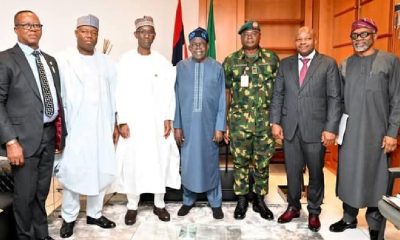
 News13 hours ago
News13 hours agoINSECURITY! Enough is enough, Tinubu tells security chiefs, NSA
-

 News24 hours ago
News24 hours agoDelta to transform into complete APC state as 25 PDP Local Government Chairmen set to defect
-

 News13 hours ago
News13 hours agoJust in: Air Peace suspends all scheduled flights nationwide
-

 News13 hours ago
News13 hours agoINEC moves to legalise voting without PVC
-

 News8 hours ago
News8 hours agoJust in: PDP can never die over gale of defection -Hon Teejay Yusuf insists
-

 News24 hours ago
News24 hours agoFinally, FG Releases N50bn to ASUU, Varsity Unions for Earned Allowances
-
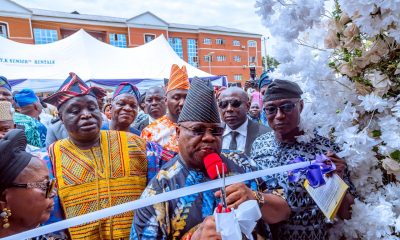
 News18 hours ago
News18 hours agoLegacy Honoured in Ede as Leadership Centre Opens in Memory of Isiaka Adeleke+PHOTOS
-
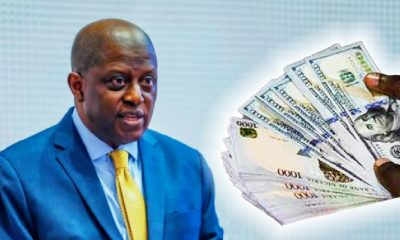
 Opinion10 hours ago
Opinion10 hours agoCBN under Cardoso and $6.83 Billion balance of payments surplus in 2024 that signals economic resurgence


















